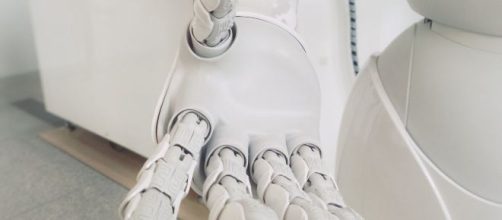The concept of artificial intelligence (AI) was first used in 1956. New technologies have made AI more and more efficient, and robots are now able to perform human actions. Intelligent robots can perform increasingly complex tasks, most of the time in the workplace. What's new today in the field of AI?
Automation, a priority for companies
In order to improve their performance, companies are increasingly using new technologies. The industrial robot is one of the most used tools; they resort to increasing production rates and output. Far from being a novelty, robotization has been popular for many years in the construction sector but also in production chains.
However, new robots are emerging. For instance, Lena is a robot that is used in the medical sector, more specifically in cosmetic surgery. Its autonomous arm is able to administer botox injections into the patient's face. This robot, designed by NextMotion, is therefore capable of performing safe injections with extreme precision. Nevertheless, these operations still have to be supervised by a cosmetic surgeon.
Are robots taking over?
Artificial intelligence is transforming jobs, but robots are still not completely autonomous. AI is a result of computer programming. Whether AI takes the form of connected objects or robots, this programming allows them to analyze a large amount of data and draw logical conclusions.
As a result, they do not have the capacity to adapt decisions to the situation at hand, since only a human being can take into account surrounding factors, notably such as emotional criteria. Therefore, in the world of work, robots can only perform repetitive tasks; they cannot replace human beings. Opinions concerning AI are a mixed bag.
On the one hand, they are deemed to make workers redundant in some sectors, but AI can also be said to create jobs. In addition, according to a study by Enterprise Strategy Group and Oracle, AI greatly improves business performance. Companies that have opted for the use of artificial intelligence and emerging technologies such as IoT, digital assistants or blockchains, have averaged 80 percent growth in terms of their annual profits.
AI allows companies to innovate faster, get a competitive edge, and evaluate their business. It helps them on many levels: to reduce the margins of error, automate a number of accounting processes or optimise various profit factors and gain insights into their activity. 72% of companies using AI have a better understanding of their overall performance, which in turn helps them accelerate growth.
Conclusion
It can, therefore, be said that, in an era that aims at constantly developing new technologies, artificial intelligence has become an inevitable part of everyday life and the world of employment.


